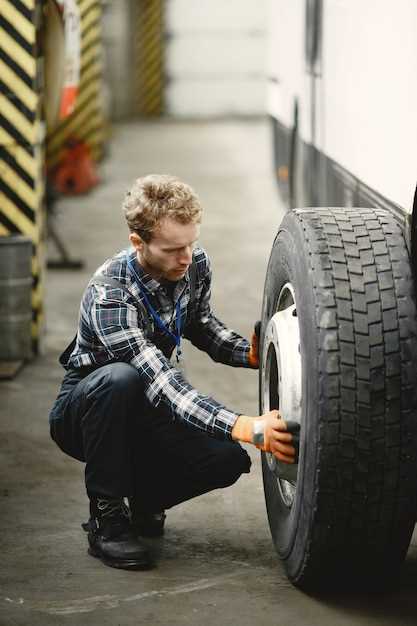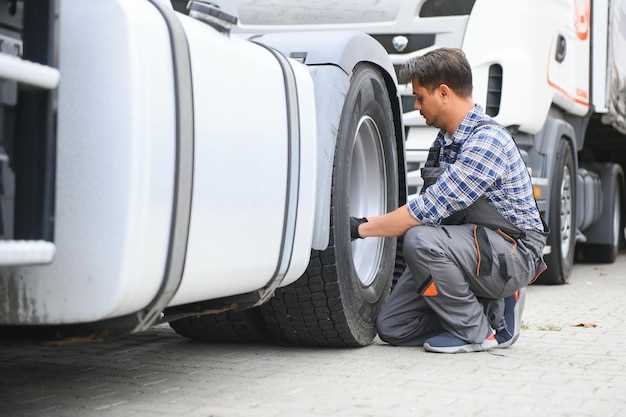
Tires are a crucial component of any trailer, directly impacting its safety, performance, and longevity. Over time, tires wear down due to various factors such as road conditions, load weights, and exposure to the elements. Recognizing when to replace your trailer tires is essential not only for maintaining optimal performance but also for ensuring the safety of your travels.
It is important to pay attention to specific signs that indicate the need for tire replacement. Cracks, bulges, and uneven wear patterns can signal that your tires are no longer safe for use. Additionally, even if tires appear visually intact, their age can be a determining factor; many manufacturers recommend replacing tires every six to ten years regardless of tread wear. Regular inspections should be part of your maintenance routine, allowing you to detect issues early and avoid potential hazards on the road.
Moreover, understanding the trailer’s usage conditions can further guide the timing for tire replacement. Trailers that are frequently used for heavy loads or on rough terrains may experience more rapid tire degradation, necessitating earlier replacement. Ensuring that your tires are in optimal condition not only enhances safety but also contributes to better fuel efficiency and a smoother towing experience.
Signs Your Trailer Tires Need Replacement

Tires are essential for the safe operation of your trailer, and recognizing the signs that they need replacement can prevent accidents and costly damage. One of the most obvious indicators is visible tread wear. If the tread is worn down to the wear bars or if uneven wear patterns are apparent, it is time to replace the tires. Additionally, check for cracking or bulging. Sidewall cracks indicate age deterioration, while bulges can signify internal damage that could lead to blowouts.
Another sign is the age of the tires. Even if they appear to have sufficient tread, tires should typically be replaced every six to ten years, depending on the manufacturer’s recommendations. If your trailer has experienced any hard impacts or excessive wear from rough roads, it’s advisable to examine your tires closely and consider replacing them.
Look for signs of leaks or low pressure frequently. Continuous air loss may suggest a puncture or faulty seal, necessitating tire replacement. Lastly, if you experience a rough ride or increased vibrations when towing, it could indicate imbalance or structural issues with the tires, signaling the need for replacement.
How to Determine the Age of Your Trailer Tires
To ensure the safety and reliability of your trailer, it’s crucial to know the age of your tires. The deterioration of rubber compounds over time can lead to tire failure, even if the tread appears to be in good condition.
The age of a tire can typically be found on the sidewall, which features a DOT (Department of Transportation) code. This code includes a series of numbers that indicate the tire’s manufacturing date. Look for the last four digits of the code, which represent the week and year of production. For example, a code ending in ‘2319’ means the tire was made in the 23rd week of 2019.
If the tire is older than six years, consider it for replacement, regardless of tread wear. Even tires that are rarely used can degrade, as exposure to sunlight, temperature fluctuations, and environmental factors can cause rubber to harden and crack.
Also, keep track of your trailer tire’s usage pattern. If you frequently travel long distances or carry heavy loads, the tires may wear out faster than expected, necessitating more frequent inspections and possible replacements.
Make it a habit to regularly inspect your tires and note their manufacturing date. Doing so will help you determine when they need to be replaced for optimal safety while towing your trailer.
Choosing the Right Replacement Tires for Your Trailer

Selecting the appropriate replacement tires for your trailer is crucial for ensuring safety and performance during travel. Begin by checking the trailer’s specifications, which typically include the correct tire size, load rating, and overall type. This information is often found on the manufacturer’s placard or in the owner’s manual.
Next, consider the type of trailer and its intended use. If you use your trailer for heavy loads or frequent travel on uneven terrain, specialized tires designed for durability may be necessary. For lighter duty trailers, standard highway tires might suffice.
Evaluate the tread pattern on the tires. For hauling trailers, look for tires with a deeper tread for better traction, especially in wet conditions. On the other hand, smooth tread patterns are suitable for highway use, providing less rolling resistance and improved fuel efficiency.
It’s also important to match the tires to your trailer’s weight capacity. Always select tires that meet or exceed the load rating specified for your particular trailer. Overloading a tire can lead to premature wear or catastrophic failure during transit.
Lastly, consider purchasing tires from reputable brands known for their quality and reliability. Research reviews and consult professionals if you have any doubts. The right choice can enhance your trailer’s performance and ensure safer travels.





